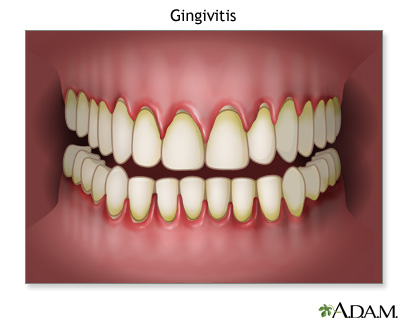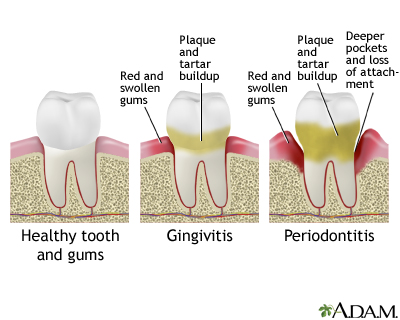
If you have diabetes, you are at risk for gingivitis. Fortunately, there are many treatment options for this disease. First, you should learn how to control your blood glucose. This disease can also be caused by a lack of proper oral hygiene. It is important to floss and limit sugary drinks. During regular dental checkups, you should also schedule a professional cleaning at least twice a year, but you should go even more often if you notice any symptoms.
If you suspect that you have gingivitis, it is important to see your dentist for a professional cleaning. You may need to visit your dentist more often than this, however. Home cleanings can not remove all of the plaque that can lead to gum disease. During a professional cleaning, your dentist can use various instruments to clean the plaque and calculus that are causing inflammation. Your oral health is important, so it is essential to follow your dentist’s recommendations.
While many dentists recommend regular professional cleanings every six months, those with gingivitis should see a specialist for more frequent cleanings. Despite the benefits of at-home cleanings, they may not be able to remove plaque fully. Your dentist will suggest a specific treatment plan for your condition. During these appointments, he or she will also use antibacterial mouthwash and orthodontic appliances to prevent recurring infections.
Early-stage gingivitis is easily treatable by patients. The main objective is to reduce inflammation. You can perform dental plaque removal at home using different instruments. During this stage, gingivitis is usually painless and can be managed by a patient. It is important to see your dentist as soon as possible to get any problems fixed. The most common treatment for gingivitis is a combination of home care and professional treatment.
While the early stages of gingivitis can be treated at home, if left untreated, it can progress to periodontitis. This is a serious condition that can cause tooth loss. Chronic gingivitis has also been associated with systemic diseases, such as coronary artery disease, diabetes, and respiratory disease. Researchers have found that the bacteria responsible for periodontitis can enter the bloodstream through the gums. This suggests that this condition is best treated at an early stage.

There are many treatments for gingivitis, but the main goal is to reduce inflammation and restore healthy gums. At an early stage, the disease is easily treatable, and the main goal is to eliminate plaque. However, in advanced stages, the disease may need to be treated with more advanced procedures such as root planing or scaling. If detected early gingivitis symptoms are treatable and may not even require treatment.
The most common form of gingivitis is a type of inflammation of the gums. This inflammation is caused by many factors, including smoking and chewing tobacco. There are also systemic and local conditions that can trigger gingivitis. People with gingivitis should seek treatment as soon as they notice signs of the disease. The first step is to have the affected area examined by a dentist.
The early stage of gingivitis is characterized by increased collagenolytic activity, which causes inflammation. This is due to a higher concentration of plasma cells and macrophages. In the early stages, symptoms are more difficult to detect due to the lack of pain. It is important to seek dental care for gingivitis as it can lead to serious complications such as bleeding and even death. You should also seek medical attention at ctrip.co.th if you have any of these symptoms.
The main goal of treating gingivitis is to relieve inflammation. If you are experiencing pain, your dentist will prescribe medication to relieve the discomfort. If the condition is mild, you can take care of it yourself, but if it persists, you should see a dentist for a professional diagnosis. There are various types of treatment for gingivitis, including interproximal cleaning, professional scaling, and root planing.
The first stage of gingivitis is characterized by red, inflamed gums. Inflamed gums may bleed when brushed or flossed. If left untreated, gingivitis can develop into more serious symptoms. Inflammatory plaque is the main culprit of gingivitis. It can eat away at tooth enamel and make your gums brittle. Additionally, poor oral hygiene can also contribute to the development of gingivitis.
.